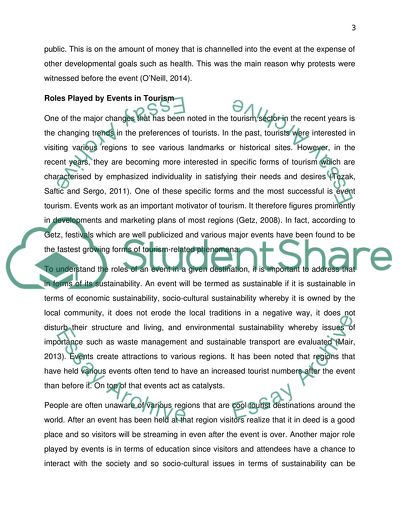Cite this document
(Relationship Between Tourism and Events Essay Example | Topics and Well Written Essays - 1750 words, n.d.)
Relationship Between Tourism and Events Essay Example | Topics and Well Written Essays - 1750 words. https://studentshare.org/tourism/1865175-critically-evaluate-the-relationship-between-tourism-and-events-and-explain-the-reasons-why-the-staging-of-events-might-be-attractive-to-tourism-authorities
Relationship Between Tourism and Events Essay Example | Topics and Well Written Essays - 1750 words. https://studentshare.org/tourism/1865175-critically-evaluate-the-relationship-between-tourism-and-events-and-explain-the-reasons-why-the-staging-of-events-might-be-attractive-to-tourism-authorities
(Relationship Between Tourism and Events Essay Example | Topics and Well Written Essays - 1750 Words)
Relationship Between Tourism and Events Essay Example | Topics and Well Written Essays - 1750 Words. https://studentshare.org/tourism/1865175-critically-evaluate-the-relationship-between-tourism-and-events-and-explain-the-reasons-why-the-staging-of-events-might-be-attractive-to-tourism-authorities.
Relationship Between Tourism and Events Essay Example | Topics and Well Written Essays - 1750 Words. https://studentshare.org/tourism/1865175-critically-evaluate-the-relationship-between-tourism-and-events-and-explain-the-reasons-why-the-staging-of-events-might-be-attractive-to-tourism-authorities.
“Relationship Between Tourism and Events Essay Example | Topics and Well Written Essays - 1750 Words”. https://studentshare.org/tourism/1865175-critically-evaluate-the-relationship-between-tourism-and-events-and-explain-the-reasons-why-the-staging-of-events-might-be-attractive-to-tourism-authorities.


